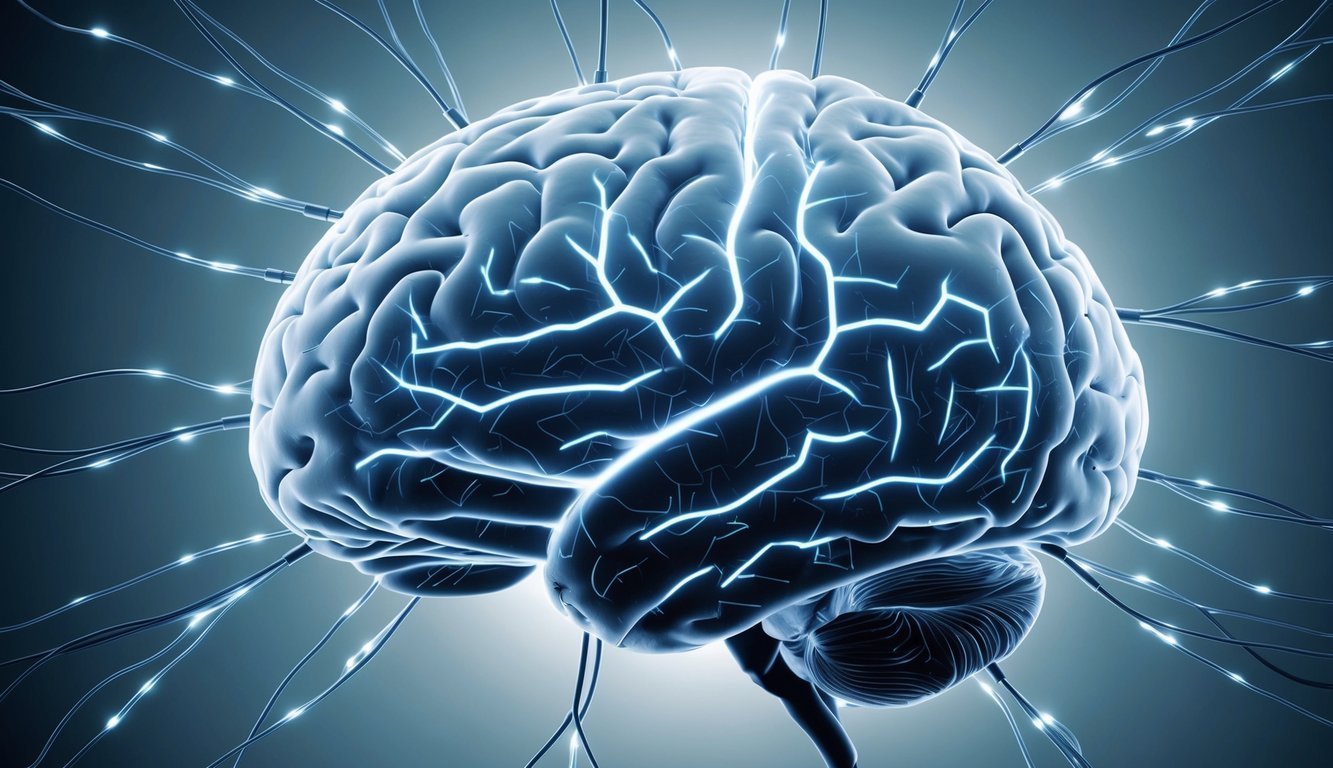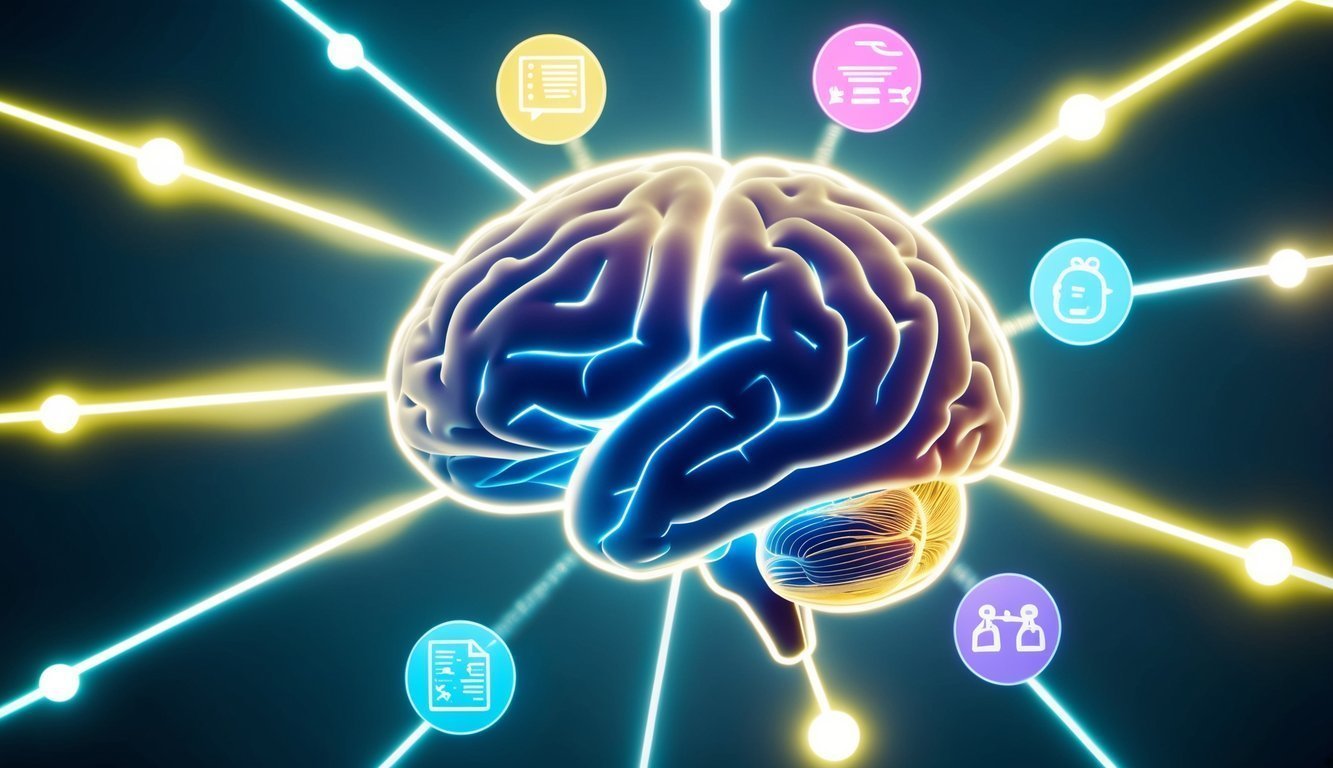PsychNewsDaily Publishers
100 Summit Drive
Burlington, MA, 01803
Telephone: (320) 349-2484
PsychNewsDaily Publishers
100 Summit Drive
Burlington, MA, 01803
Telephone: (320) 349-2484
Memory involves encoding, storing, and retrieving information, utilizing neural networks and brain structures like the hippocampus, amygdala, and cerebral cortex for various memory types.

Memory is the bedrock of human cognition and behavior. It involves a range of intricate processes that enable us to encode, store, and retrieve information over time, relying on sophisticated neural networks and the collaboration of various brain structures.
Memory is not a singular concept but comprises several specific types. Sensory memory temporarily retains sensory data for a few seconds, while short-term or working memory holds onto information for around 20-30 seconds.
Long-term memory allows for storage over extended periods, possibly throughout one’s lifetime. It is divided into explicit memory (conscious recall) and implicit memory (subconscious influences on actions).
Explicit memory is further categorized into episodic memory (personal experiences) and semantic memory (general knowledge). In contrast, procedural memory—a type of implicit memory—relates to skills and habits.
The memory process unfolds through three primary stages:
The intricate neural networks in the brain are fundamental to memory functioning. The hippocampus, for instance, is essential for the formation of new memories and navigation in space, working alongside other brain regions like the amygdala (involved in emotional memories) and the cerebral cortex (linked to long-term storage).
Synapses, which serve as connection points between neurons, play a vital role in memory development. When neurons frequently activate together, their synaptic connections are strengthened in a phenomenon known as long-term potentiation.
Key neurotransmitters, such as glutamate and acetylcholine, facilitate neuron communication and are crucial for memory functions. The medial temporal lobe, encompassing the hippocampus, is vital for forming and consolidating declarative memories.

Memory encompasses a variety of complex cognitive processes that collaborate to store and retrieve information. These processes are pivotal for our capacity to learn, remember, and utilize past experiences to shape future behavior.
Memory encoding marks the first step in creating a new memory, involving the conversion of sensory information into a format storable in the brain. Attention is critical here, as it determines what information gets selected for encoding.
Diverse types of information are encoded in unique ways:
Successful encoding often requires the elaboration and organization of information, relating new information to what is already known or creating meaningful links between details.
Retrieving memory refers to the process of accessing previously stored information, which can be triggered by external cues or internal cognitive processes. Retrieval cues are essential for accessing particular memories and can include:
The success of retrieval largely hinges on how effectively the information was first encoded and consolidated. Regular practice and review can enhance memory traces, facilitating retrieval over time.
Memory consolidation stabilizes a memory trace after it has been initially acquired. This process strengthens neural connections and facilitates the transfer of information from short-term to long-term memory.
Consolidation occurs on multiple levels:
Sleep is critical for effective memory consolidation, allowing the brain to replay and strengthen neural patterns related to newly acquired information. This is especially vital for establishing long-term memories and integrating new data with pre-existing knowledge.

Memory significantly impacts mental health and cognitive functioning. Impairments in memory can greatly affect daily routines and are often linked to various psychological and neurological disorders.
Stress and anxiety can dramatically influence memory operations. Chronic stress may result in challenges with forming new memories or recalling older ones.
Individuals suffering from post-traumatic stress disorder (PTSD) frequently experience intrusive memories tied to traumatic occurrences. These memories can be vivid and distressing, disrupting daily life.
Anxiety disorders can hinder working memory, posing difficulties in focusing and retaining information temporarily. This interference can negatively impact academic and work performance.
Depression may result in memory challenges like forgetfulness and trouble concentrating, though these issues can improve with treatment for the underlying depression.
Alzheimer’s disease stands as the most prevalent form of dementia, characterized by progressive memory degradation. Early indicators often include problems in recalling recent events or discussions.
As Alzheimer’s progresses, it also affects long-term memory, language proficiency, and daily task performance. Ongoing research seeks potential treatments and preventive strategies.
Other neurodegenerative conditions, such as Parkinson’s disease and Huntington’s disease, can also influence memory function, with varying effects on different memory types.
Mild cognitive impairment (MCI) can precede dementia, marked by noticeable memory issues that do not significantly disrupt daily activities.

Memory enhancement strategies involve cognitive techniques and lifestyle choices that can significantly bolster retention and recall abilities. These methods are grounded in cognitive science and optimize the brain’s natural processes to reinforce memory traces and synaptic connections.
Chunking is an effective technique to boost memory by dividing information into manageable segments, simplifying the retention of larger data sets. For example, phone numbers are often chunked into groups of three or four digits.
Elaborative rehearsal enhances memory encoding by linking new information with existing knowledge, involving a deeper consideration of the material and its connections to personal experiences or other familiar concepts.
Mnemotechnics, such as acronyms or rhymes, can facilitate memorization by creating meaningful associations between data points, making recall easier.
Active recall through testing yourself regularly reinforces memory. Consistent self-quizzing on learned subjects strengthens neural pathways, improving long-term retention.
Sufficient sleep is vital for memory consolidation, as it allows the brain to process and archive information from the day, transitioning short-term memories into long-term storage.
Regular physical exercise boosts blood circulation to the brain, supporting the development of new neurons and enhancing cognitive abilities. Aerobic exercises, in particular, have been shown to improve memory functions.
A nutritious diet abundant in omega-3 fatty acids, antioxidants, and vitamins is beneficial for brain health. Foods like fatty fish, blueberries, and leafy vegetables supply essential nutrients for optimal memory performance.
Techniques for managing stress, including meditation or deep-breathing exercises, can lower cortisol levels, which may otherwise hinder memory formation and retrieval; thus, relaxation practices can positively influence cognitive performance.

Psychological factors significantly influence memory processes. Emotional states and levels of stress can greatly shape how memories are created, stored, and recalled.
Emotional experiences tend to create more intense and enduring memories. The amygdala, involved in processing emotions, enhances the consolidation of memories tied to emotional events, sometimes leading to flashbulb memories—detailed recollections of significant moments.
Generally, positive emotions help memory formation and retrieval, making happy incidents easier to remember than neutral ones. Negative emotions, however, can have a more nuanced impact; while fear or sadness may hinder memory function, they can also lead to stronger memory retention in certain contexts.
The emotional state during the recall process can shape memory retrieval. People often recall events more readily when their mood matches that of the original experience, a phenomenon known as mood-congruent memory.
Stress notably affects memory operations. Acute stress can enhance memory for information relevant to a stressor, an evolutionary mechanism that helps individuals remember potentially perilous situations.
Conversely, chronic stress can detrimentally impact memory function. Ongoing exposure to stress hormones, like cortisol, can impair memory-critical brain structures such as the hippocampus, leading to challenges in forming new memories and retrieving existing ones.
High-stress experiences, such as those found in PTSD, can result in fragmented or intrusive memories that may be recalled involuntarily, causing distress.
Sleep deprivation, often linked with stress, can further disrupt memory consolidation and retrieval processes.
Anxiety can also compromise working memory and focus, complicating new information encoding and leading to selective attention on perceived threats, potentially skewing memory formation.
“`